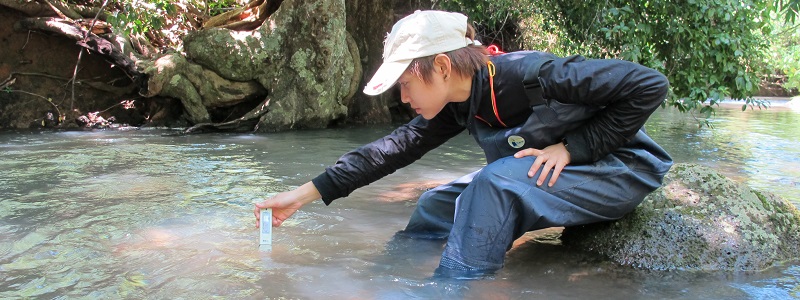Press Release: 1st February 2009
SLP Environmental recently visited Vientiane in the Lao People’s Democratic Republic (Lao PDR) to meet with a number of leading engineering consultancies, and following the visit agreed partnering arrangements with two reputable local companies based out of the capital Vientiane. Steve Pearmain, Managing Director of SLP Environmental said ‘to ensure we can provide our clients with a broad range of professional services in the South East Asian marketplace it is vital that we foster new links and relationships with local partners and develop our regional networks. We are delighted to be partnering with these companies in what is a growing and exciting market for environmental services, and we look forward to the opportunities that will arise for our clients, partners and staff alike as a result of our extended network’.
The Lao People’s Democratic Republic is among the poorest, least developed countries in Asia with an estimated Gross Domestic Product (GDP) of $1900 per capita in 2007 and agriculture as the main economic activity. The Asian Development Bank is nevertheless positive about the country’s economic outlook due to increases in new foreign investment and government-led initiatives in hydropower, food processing, mining (notably copper and gold), land transportation and tourism. These activities, if not managed sensitively, all have the potential to result in significant environmental degradation in what is one of the world’s most densely forested and ecologically diverse countries.
Mining in particular can cause severe ecological damage, and as Lao is rich in mineral resources, many companies have expressed an interest in extraction. Known mineral reserves include substantial deposits of coal, gold, bauxite, tin and copper. A recent discovery of bauxite reserves was made in the south of Lao near the Bolavent Plateau, which could be among the largest in the world, and a Chinese company has been contracted to build an aluminum smelting plant there at a reported cost of $3 billion USD.
The country’s plentiful water resources and mountainous terrain have also allowed the Government of Lao to set up a master plan to develop hydropower and export large quantities of hydroelectric energy. Approximately 30 dams are proposed along the tributaries of the Mekong River with a hydro potential of approximately 30,000 megawatts, although to date only approximately 600 megawatts is on line. The controversial Nam Theun 2 hydro project is the largest single investment ever seen in Lao, and it recently received funding from the World Bank after 16 years of studies and negotiations. A $240 million power transmission project is also currently being implemented that will enable Lao to export hydroelectric power to neighboring Vietnam and Thailand, leading some commentators to refer to Lao as ‘The Battery of Southeast Asia’.
Lao is also of strategic importance and has immense potential to develop itself as the land transportation hub of the region. The Lao Government promotes foreign investment in infrastructure-related development, which receives top priority from the government. For example, plans have been approved to build a bridge across the Mekong River between Chiang Khong in northern Thailand and Houayxay in Lao that will facilitate a direct road link between Yunnan province in SW China and Bangkok in Thailand. In real estate and construction, a Chinese company will break ground on a new integrated property development dubbed ‘New City Project’ worth around $1 billion USD that will significantly alter the landscape of the country’s sleepy capital, Vientiane. Tourism is also a major growth industry, bringing in approximately $233 million in 2007. To accommodate this growing demand, the government has contracted a Korean company to undertake the design of a new international airport, with construction scheduled to begin in 2015.
The natural resource wealth of Lao should secure the country’s economic future, but with its exploitation comes the very real risk of severe environmental degradation, as indeed Laos’ more developed neighbors have discovered to their considerable cost. It is worth noting that rural Lao remains an essentially agrarian society, and the livelihoods of its people are underpinned by the presence of the healthy and diverse ecosystems that provide them with sustenance. Unbridled development has the potential to pollute land, soil and water and threaten the health and livelihoods of the very people it was meant to benefit.
Fortunately Lao is waking to the importance of protecting the natural environment and the government is beginning to develop a comprehensive body of domestic legislation to deal with conservation and pollution issues. The Regulation on Environmental Assessment (No: 1770/STEA) establishes uniform environmental assessment requirements for all development projects in Lao and identifies the roles and responsibilities of the various parties. The process is largely compatible with international guidelines for conducting Environmental Impact Assessments (EIA) and the bottom line is that construction activities cannot commence until Science Technology and Environmental Agency (STEA) approval is received. Thankfully, public involvement is now a requirement under the new regime, and stakeholders should be notified and consulted during the assessment process to ensure their views are considered and addressed.
SLP Environmental offer a comprehensive range of environmental consultancy and sub-consultancy services to support business transactions such as mergers, divestitures and acquisitions. We are uniquely placed in the SE Asian market to deliver high quality environmental consultancy services as we combine internationally acquired expertise with an in-depth understanding of SE Asia’s regulatory frameworks and cultural sensitivities. This ensures that our reports both conform to international quality standards such as ISO and ASTM as well as addressing compliance with jurisdiction specific regulatory requirements.
SLP Environmental Directors are Chartered Environmentalists (CEnv) and members of The Due Diligence Group, Mergers and Acquisitions Professionals and the Environmental Compliance Consultants Group. Our project sector experience includes the property, manufacturing, petro-chemical, pharmaceutical, energy and telecommunications sectors and our satisfied clients include; private equity investment funds, manufacturers, developers, insurers, lawyers, risk & liability management firms, international environmental consultancies and numerous blue chip corporations. SLP Environmental consultants offer international quality Environmental Consulting services in Cambodia, Indonesia, Laos, Malaysia, Myanmar, Philippines, Thailand and Vietnam.

